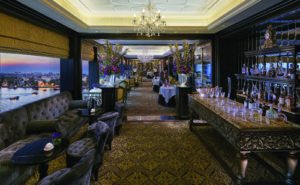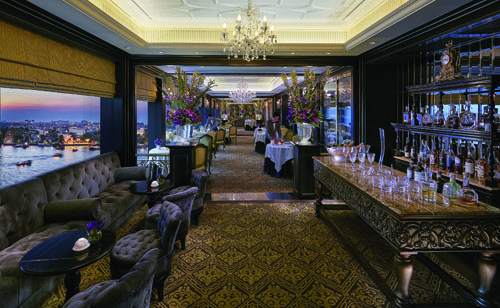While TAT says it wants to focus on quality, a planned, coordinated approach is needed. By Raini Hamdi

With slower growth from Europe due to economic reasons and recent terrorism incidents, and a surge in arrivals from Asia driven in part by an increased number of budget carriers, Bangkok lands itself in a situation where too many upscale and luxury hotels are chasing too few high-yield clients.
The quest for better-paying guests has become critical, even as more than 2,200 luxury hotel rooms are opening along Sukhumvit Road over the next 18-24 months, and more new hotels will sprout along the Chao Phraya River and in the Ratchadamri area, observed Richard Chapman, general manager of Sheraton Grande Sukhumvit.
The Tourism Authority of Thailand (TAT) said it is “fundamentally changing” its marketing plan to focus on quality experience than arrival numbers growth. At a recent GTA meet, deputy governor Juthaporn Rerngronasa said as part of the plan there would be increased focus on digital media and content marketing and a move to target high-yield niches including luxury travel, cruise market, health/wellness, honeymoons, golf and community tourism.
The meeting also sealed a strategic partnership programme among TAT, GTA and 64 premium hotels in Thailand to drive higher-spending tourists.
But industry players want to see more done. In a string of interviews, a common wish is getting back the MICE business.
Saying that having more international MICE events would help to increase arrivals and yield in Bangkok, Lim Boon Kwee, CEO of Dusit International, also believes that Thailand would do well to encourage investments.
“While promotional activities seem predominantly on the leisure sector, encouraging investments into the country will help increase the number of business travellers which will provide a higher yield,” Lim reasoned.
“Thailand is still an extremely competitive and cost-effective location for business investments compared to many other countries.”
Industry members also believe that with sophisticated travellers and competition from other destinations, Thailand needs to create or pull in world-class events year-round and deliver unique experiences.
Chapman summed up these sentiments: “Apart from staying in luxury hotels and dining in quality restaurants, the luxury traveller is looking for high-end activities. Palatial shopping malls with global known brands we have. But what we lack is quality entertainment year-round in the form of an opera house, international theatre productions, etc, as found in Hong Kong or Singapore.
“TAT, supported by sponsorship from private companies, should establish some top-end sporting events. Local tour operators must improve the quality of their tours both in terms of properly trained guides, but also curating interesting and educational experiences, rather than that dreadful one day tour to Damnoen Saduak floating market.”
David Cumming, Onyx Hospitality Group’s vice president area general manager Bangkok, said while TAT claimed a shift to high-yield visitors, a clear strategy was needed.
“A working party with TAT, wholesalers, airlines and hotels to put a concrete plan in place with a strong drive from TAT is required,” he said.
GTA’s strategic partnership programme may be a testbed. Daryl Lee, GTA regional vice president of sales and marketing AMEA, said the plan would be led and coordinated by GTA and would involve a series of marketing activities and promotions in key source markets across Asia-Pacific and the Middle East.
There would be education workshops and seminars to update the trade on the latest must see, do and experience in Thailand. Frontline retail travel agents would also be armed with tools and knowledge to better promote Thailand as a luxury destination. As well, GTA is working with TAT to bring more travel trade professionals to Thailand to experience some of the luxury holiday experiences.
“The partner hotels are an integral part of the programme and each will work closely with GTA to offer travellers a luxury experience when they visit Thailand,” Lee said.
When asked how he planned to drive a higher ADR, he said: “ADR is really a basic component of supply and demand. For example, if we can better showcase the higher category rooms (such as suites and villas), more people will choose to stay in them the next time they visit Thailand. We also want to encourage people to stay longer when they visit by developing new and interesting experiences, showcasing the hidden gems of Thailand.”
Lee pointed out that Thailand was so successful for its outstanding value for money that travellers often overlook that the country has a lot more to offer.
“For example, a yacht charter to cruise the Andaman Sea is just as enjoyable but will cost far less compared to hiring a yacht in Europe or the US. And so, it will take some time for tourists to realise the potential of Thailand as a luxury destination.”
GTA aims to realise that by showcasing the latest happenings, the outstanding value and quality Thailand offers.
“Last year, our ADR for Thailand rose 12 per cent year-on-year and we are looking to double that growth in 2016, driven by the strategic partnership programme,” Lee said.
This article was first published in TTG Asia, June 3, 2016 issue, on page 34. To read more, please view our digital edition or click here to subscribe




















